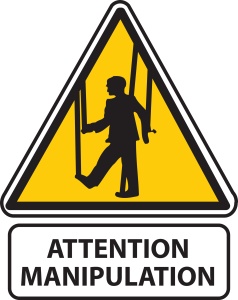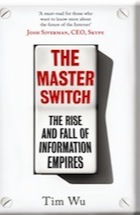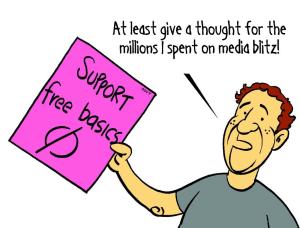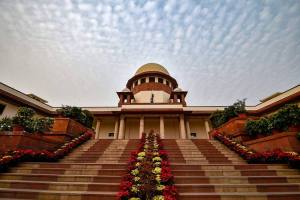
The Union Territory of Jammu and Kashmir (which before the Supreme Court is almost always represented by a Counsel for the Union of India) a few days ago filed an Affidavit expressly making a statement that the right to access the internet is not a fundamental right. To quote the text verbatim below:
“It is submitted that the right to access the internet is not a fundamental right and thus the type and breadth of access for exercising the right to freedom of speech and expression under Article 19(1)(a) and/or to carry on any trade or business under Article 19(1)(g) of the Constitution of India (CoI) through the medium of internet can be curtailed….”
The submission was made in the specific context of the action of the Union to not allow the speed of the internet to be more than that of a 2G cellular network. But my excitement at this statement is not a rage against any high handedness (which is presently sub-judice before the Court) by the administration but rather the opportunity which once again arises to argue a right to internet access !!
It appears to be a common misconception among the public that the Supreme Court has settled this question once and for all in Anuradha Bhasin v. Union of India and Ors., W. P. (Civil) 1031 of 2019. On the contrary however, it specifically observed that:
“28. None of the counsels have argued for declaring the right to access the internet as a fundamental right and therefore we are not expressing any view on the same. We are confining ourselves to declaring that the right to freedom of speech and expression under Article 19(1)(a), and the right to carry on any trade or business under 19(1)(g), using the medium of internet is constitutionally protected.”
Rather, what it went on to hold was that:
“…the freedom of speech and expression and the freedom to practice any profession or carry on any trade, business or occupation over the medium of internet enjoys constitutional protection under Article 19(1)(a) and Article 19(1)(g). The restriction upon such fundamental rights should be in consonance with the mandate under Article 19 (2) and (6) of the Constitution, inclusive of the test of proportionality.” (Emphasis added)
Yes, I agree that there is scope for a submission that the answer might be the same even if the issue was worded differently to specifically make submissions on the right to access the internet, but that doesn’t degrade the importance of the issue and its affect on policy matters such as Network Neutrality, concerning which passionate arguments from both sides of the fence tend to be based, at their core, on the right of access to the internet !! (The difference between the two sides is the interpretation of such a right and what is encompassed within it.)
The Court also itself recognised that it the issue could not be simply dismissed as irrelevant and required some serious consideration, if not on that day, then definitely someday later. Certain paragraphs in the first half of the Judgement are encouraging.:
“22. Now, we need to concern ourselves about the freedom of expression over the medium of internet. There is no gainsaying that in today’s world the internet stands as the most utilized and accessible medium for exchange of information. The revolution within the cyberspace has been phenomenal in the past decade, wherein the limitation of storage space and accessibility of print medium has been remedied by the usage of internet.
23. At this point it is important to note the argument of Mr. Vinton G. Cerf, one of the ‘fathers of the internet’. He argued that while the internet is very important, however, it cannot be elevated to the status of a human right. Technology, in his view, is an
enabler of rights and not a right in and of itself. He distinguishes between placing technology among the exalted category of other human rights, such as the freedom of conscience, equality etc. With great respect to his opinion, the prevalence and extent of internet proliferation cannot be undermined in one’s life.24. Law and technology seldom mix like oil and water. There is a consistent criticism that the development of technology is not met by equivalent movement in the law. In this context, we need to note that the law should imbibe the technological development
and accordingly mould its rules so as to cater to the needs of society. Non recognition of technology within the sphere of law is only a disservice to the inevitable. In this light, the importance of internet cannot be underestimated, as from morning to night we are encapsulated within the cyberspace and our most basic activities are enabled by the use of internet.25. We need to distinguish between the internet as a tool and the freedom of expression through the internet. There is no dispute that freedom of speech and expression includes the right to disseminate information to as wide a section of the population as is possible. The wider range of circulation of information or its greater impact cannot restrict the content of the right nor can it justify its denial. [refer to Secretary, Ministry of Information & Broadcasting Government of India v. Cricket Association of Bengal, (1995) 2 SCC 161; Shreya Singhal v. Union of India, (2015) 5 SCC 1].” (Emphasis added)
My only disgruntlement is with the first line of paragraph twenty five which has been quoted above, because I am firmly of the opinion that the internet cannot and should not be classified as a tool, but rather as a resource which is used by individuals and entities to create tools and services for mankind. I’ve focused on this here and here, and am now thinking of doing a separate piece altogether on the justification for such a classification.
Hopes can be belied of course, and with the present Covid – 19 situation in New Delhi, it’s best not to hazard a guess as to when the Court will start functioning on a regular schedule again, and even if it does, whether such full fledged arguments as I hope for will even actually take place. But then, no harm being optimistic. 🙂

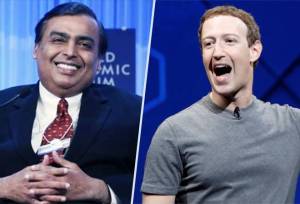 (Business Today)
(Business Today)